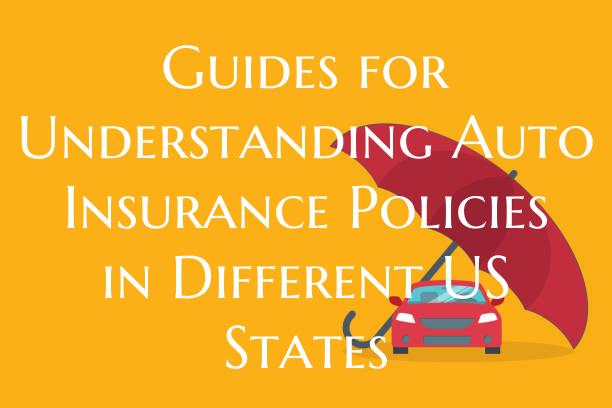When it comes to auto insurance policies in the United States, understanding the specific regulations and requirements of each state is crucial. From coverage options to minimum liability limits, navigating the realm of auto insurance can vary significantly depending on where you reside. To help you gain a comprehensive understanding of auto insurance policies across different states, here are some essential guides and tips:
1. Research State-Specific Requirements: Start by researching the auto insurance requirements in your state. Each state has its own minimum liability limits for bodily injury and property damage coverage that drivers must carry. Understanding these requirements is fundamental in ensuring you have the adequate coverage to comply with the law.
2. Coverage Options and Add-Ons: Apart from the mandatory liability coverage, familiarize yourself with other optional coverage options available in your state. These can include collision coverage, comprehensive coverage, uninsured/underinsured motorist coverage, and medical payments coverage. Knowing which coverage options are available and recommended in your state can help you tailor your policy to suit your needs.
3. Factors Affecting Auto Insurance Rates: Auto insurance premiums can vary based on a multitude of factors, including your driving record, age, location, and the type of vehicle you drive. Different states may prioritize these factors differently when determining insurance rates. Understanding how these factors impact your premiums can help you make informed decisions when selecting coverage options.
4. State-Specific Discounts and Programs: Some states offer specific discounts or programs that can help you save on your auto insurance premiums. These can include safe driver discounts, multi-policy discounts, pay-as-you-drive programs, and more. Explore the various discounts and programs available in your state to maximize your savings.
5. Legal Considerations and Consumer Rights: It's essential to be aware of your rights as a consumer and understand the legal provisions related to auto insurance in your state. This includes knowing the process for filing claims, resolving disputes with insurers, and understanding the implications of being involved in an accident in a no-fault state.
By following these guides and tips for understanding auto insurance policies in different US states, you can navigate the complex world of insurance with confidence and ensure you have the coverage you need to protect yourself and your assets on the road. Remember, staying informed and proactive is key to making informed decisions when it comes to your auto insurance policy.

